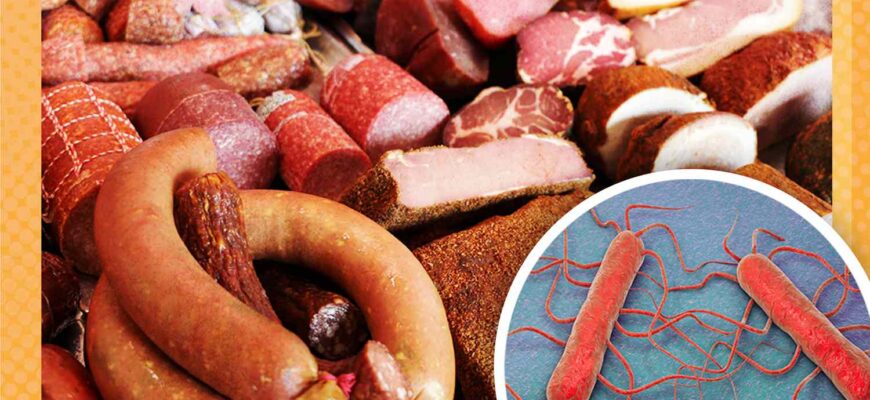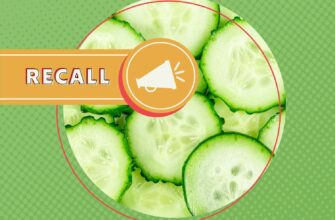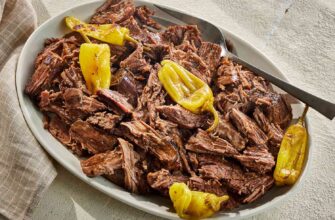Close
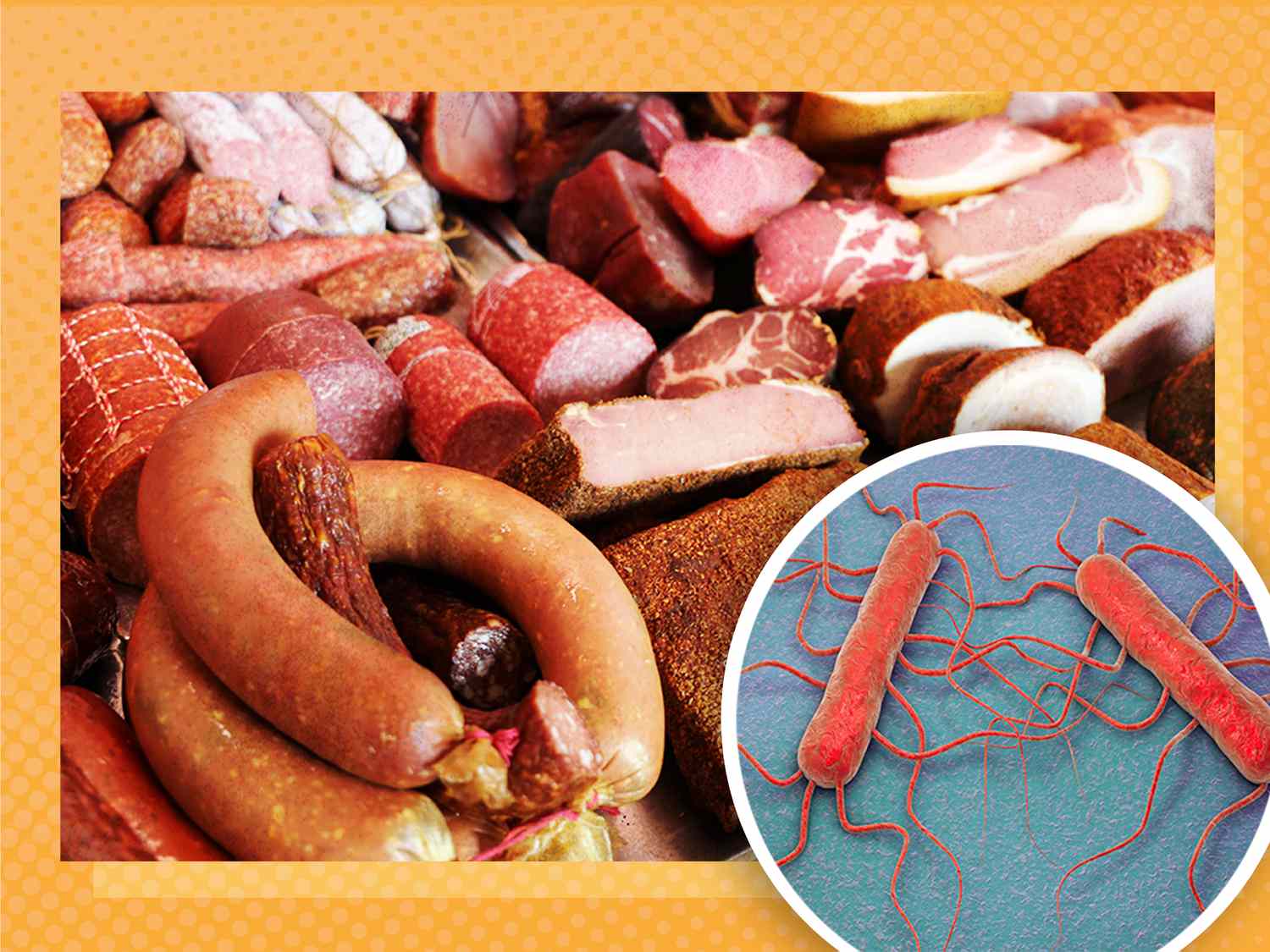
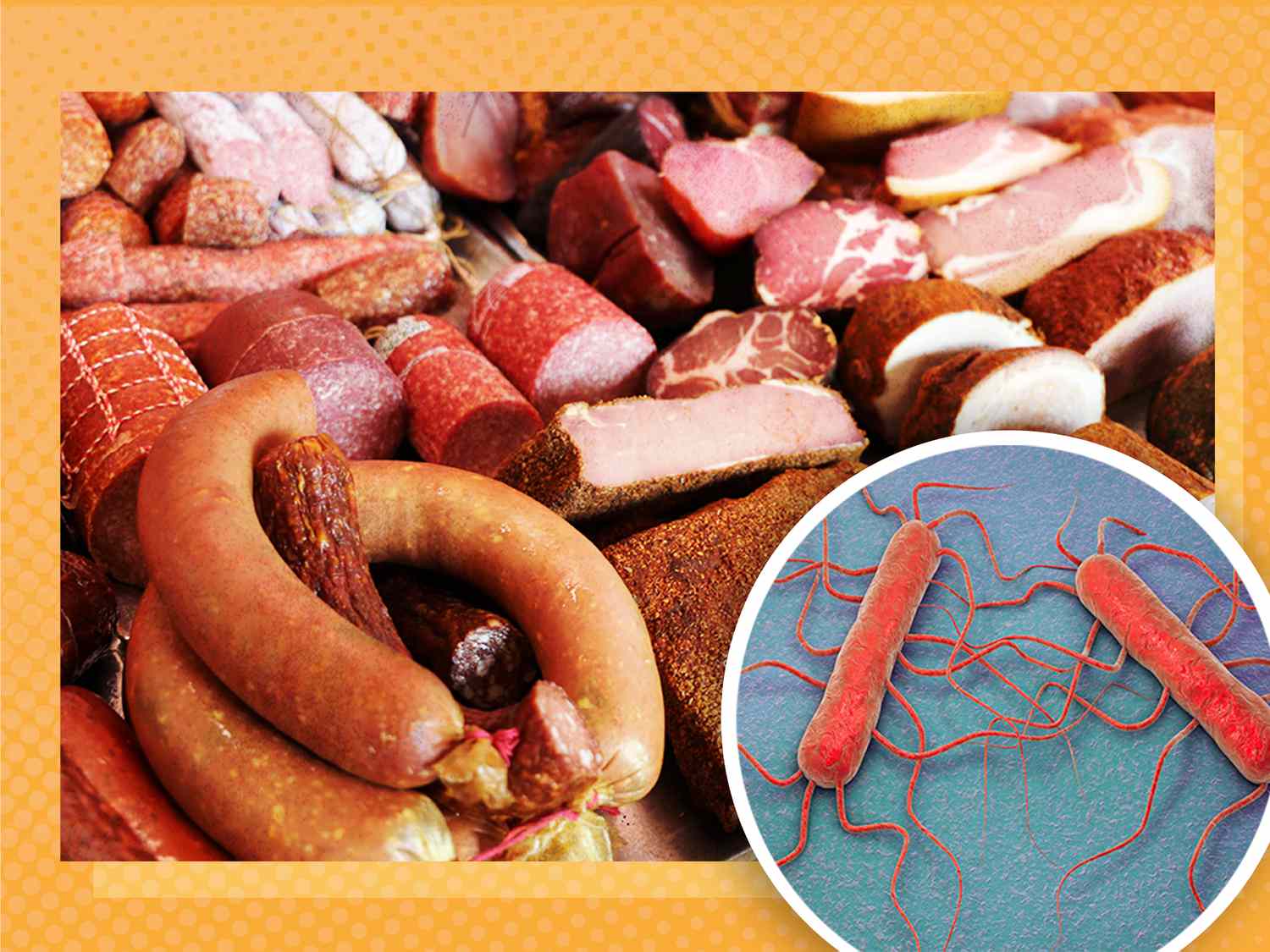
Credit:
Getty Images / Allrecipes
It seems like nearly every week there’s a news alert about a massive recall or outbreak of disease related to contaminated food. It may even feel like those outbreaks are more frequent lately than in past years. Well, trust your gut, because there was a 41 percent increase in food-related recalls from Salmonella, Listeria and E. coli compared to the previous year, according to the watchdog group U.S. Public Interest Research Group Education Fund’s new report, “Food for Thought 2025.”
The rates of hospitalizations related to these outbreaks doubled from 230 in 2023 to 487 in 2024. Most alarmingly, the number of deaths also doubled—from eight in 2023 to 19 in 2024. This trend is daunting, perhaps made more worrisome by the fact that of the nearly 1,400 people who became ill from food they ate in 2024, 98 percent of those cases were traced to just 13 outbreaks.
“The federal government estimates that there are 48 million cases of foodborne illness each year (the equivalent of one in six Americans),” explained Matthew Taylor, Senior Manager, Food Consulting, NSF. “Most of the major outbreaks were related to higher-risk foods, such as sprouts, leafy greens, deli meats and cheese.”
It begs the question: should we be changing the way we shop and eat in light of these outbreaks? Consumer Reports recently published a list of the 10 riskiest foods to eat according to the 2024 outbreak and recall data, so we asked food science and safety experts to offer their opinions on these foods, as well as their thoughts on how to stay safe.
The Riskiest Foods to Eat, According to Food Safety Data
Deli Meat
We often throw together a quick sandwich with cold cuts like ham, roasted turkey, or chicken without much thought. But in 2024, deli meats were one of the biggest culprits of foodborne illness outbreaks, largely from a deadly Boar’s Head recall. Deli meats seem to get recalled frequently, so what makes them so susceptible to contamination?
“Deli meats are especially vulnerable to Listeria monocytogenes because the bacteria loves cool, damp places—just like the inside of your refrigerator or deli case,” said Jessica Gavin, a certified food scientist and author. “What’s tricky about listeria is that it can grow at temps as low as 31 degrees F. Even though meats like cold cuts are cooked during processing, they can still pick up bacteria afterward from contaminated surfaces. It’s a tough organism to get rid of, even with regular cleaning and sanitizing procedures in a food production or deli environment, which is why these products are often linked to food safety recalls.”
Cucumbers
There was a large outbreak of illness related to cucumbers contaminated with Salmonella last year. More than 150 people were hospitalized after eating cucumbers grown by Florida’s Fresh Start Produce Sales, Inc. More cucumbers grown in Mexico were recalled this past fall, also from Salmonella contamination.
To reduce your risk of consuming harmful bacteria on fresh produce, be sure to practice good kitchen hygiene, Gavin said. “Wash your hands with warm, soapy water for 20 seconds before handling food. Rinse all food, even ready-to-eat varieties, under cool running water to remove dirt, bacteria, and pesticide residue, then dry with a clean towel to further reduce surface bacteria.”
Raw Milk and Raw Cheeses
Most milk sold in the United States has gone through pasteurization, a process of heating milk to remove disease-causing germs. But some states allow for the sale of raw milk and raw milk cheeses. “It’s important to understand that raw milk can be a source of foodborne illness,” according to the Centers for Disease Control and Prevention (CDC). “While good practices on farms can reduce contamination, they cannot guarantee safety from harmful germs.” As such, raw milk and raw milk cheeses may contain Salmonella or E. coli.
There are also recent concerns that budget cuts, staff reductions, and changes in priorities have shifted the federal government’s milk quality testing for avian flu and other viruses. However, research has indicated that pasteurization is effective in killing avian flu.
“Pasteurized milk offers the same nutritional benefits without the risks of raw milk consumption,” according to the CDC. “Since the early 1900s, pasteurization has greatly reduced milk-borne illnesses.”
Cotija and Queso Fresco Cheese
Similar to the concerns with deli meat, certain cheeses, like cotija and queso fresco, can be susceptible to Listeria contamination due to how they are produced and the conditions they provide for pathogens to flourish, explained Taylor. “These foods are often made from raw ingredients that can harbor harmful bacteria if not handled correctly or if not processed on equipment that has been adequately cleaned. Additionally, their moisture content creates an environment conducive to bacterial growth and some pathogens are known to be present in the environment, on surfaces, in drains, and on people who may be handling the products.”
As a result, these cheeses have a higher risk of Listeria contamination, and it’s recommended that pregnant women and those with weakened immune systems skip them all together.
“What makes listeria especially concerning is that it can thrive even in cold temperatures, including inside your refrigerator,” Gavin explained. “Even if queso fresco is made with pasteurized milk, it can still be contaminated after processing if the environment isn’t clean. Cheeses made from unpasteurized milk pose an even higher risk since harmful bacteria aren’t eliminated.”
Related
What Is Listeria and What Foods Are Most Likely to Be Affected?
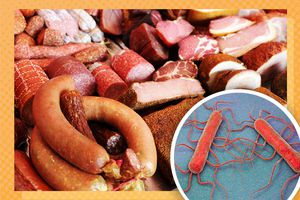
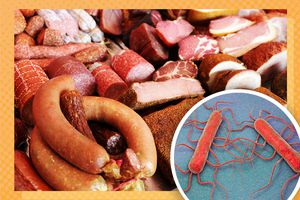
Does Cooking Kill Salmonella?


Eggs
Perhaps the one food on this list that should come as little surprise, eggs are frequently associated with the risk of Salmonella. The bacteria can live inside the egg itself, meaning you run the risk of cross-contamination if you crack eggs on a surface that is meant for ready-to-eat food.
“You can’t tell if an egg has Salmonella just by looking at it,” Gavin said. “Contaminated eggs often look and smell completely normal. That’s why it’s important to cook them thoroughly to kill any harmful bacteria. If the egg white looks pink or iridescent, it could be spoiled from Pseudomonas bacteria, which can be harmful. And always trust your nose! If an egg smells off, toss it. Never buy cracked eggs, since bacteria can slip in through even small breaks in the shell.”
In addition, if a recipe calls for raw eggs or if you have a weakened immune system or are pregnant, consider switching to pasteurized eggs. “To minimize risk, consider purchasing pasteurized eggs, which are treated to eliminate harmful bacteria,” Taylor suggested. “Always remember to check the expiration date of your eggs.”
Onions
Raw onions were the source of one of the most prominent recalls last year. McDonald’s removed onions sourced from Taylor Farms after an outbreak of E. Coli-related illness impacted 104 people, including 34 hospitalizations and one death.
As with consuming other fresh produce, be sure to rinse onions well if eating it raw. Cooking onions will also kill harmful bacteria. “Rinse fruits and vegetables under running water before eating or cooking,” Taylor said. “Thorough rinsing is key, and using equipment to help wash and rinse could be an effective means.”
Leafy Greens
Some of the other most well-known recalls in recent years came from leafy greens like romaine lettuce and spinach. The risk has nothing to do with the vegetables themselves, but rather runoff of contaminated water and dirty water used to wash ready-to-eat greens. There were two active U.S. Federal Drug Administration (FDA) investigations as of February 2025, including one traced to romaine lettuce that caused 89 illnesses from E. coli.
“While washing can reduce the risk of harmful bacteria like E. coli, there is still a risk that pathogens could exist in produce that is not rinsed, or which has been washed in a chemical food-grade sanitizer solution,” Taylor explained. So, if you are in a high-risk group, you may want to consider avoiding raw leafy greens and lettuce.
Carrots
You may notice a pattern with a lot of these risky foods and that’s contamination from water used to clean fresh produce or the water that’s used in the growing fields. Carrots fit into this group as they are grown in soil and typically washed before packaging. In 2024, there was a nationwide recall of whole and baby carrots sold by Grimmway Farms due to E. coli contamination. One death was reported in connection to the outbreak.
As with other fresh produce, your best bet is to wash carrots very well and scrub them dry with a clean towel. Cooking carrots will also help eliminate potential harmful bacteria.
Basil
Last spring, there was a recall of fresh basil sold by Infinite Herbs due to Salmonella contamination. While we all think of basil as an herb, which of course it is, it grows in fields or greenhouses like a leafy green. Therefore it, like many other fresh greens, carries the same risk of harboring harmful bacteria linked to contaminated water.
Given this risk, it’s a good idea to properly wash your fresh herbs before use. Start by removing any rubber bands or ties, discarding any rotten leaves, and giving the herbs a good rinse. You can even use a small salad spinner to soak your herbs and gently spin them dry. Be sure to dry your herbs well before storing.
Precooked Meats
The risk of consuming raw meat, seafood, and shellfish are well documented (just look at the disclosure at the bottom of a restaurant menu) but even cooked meats run the risk of getting you sick. To be clear, we are talking about the meals or kits from a grocery store containing pre-cooked meat, not anything you’d cook yourself at home.
So what exactly is the problem if the meat is already cooked? It has a lot to do with safe handling. For example, last year nearly 73,000 pounds of ready-to-eat meat and poultry products from South Carolina-based company Yu Shang Food, Inc., were recalled due to possible Listeria contamination. This outbreak led to two deaths.
If you’re in a high-risk group, again, you may want to consider cooking any meat at home to ensure it’s safe, though these outbreaks are more rare.
Bottom Line
We get it, you may be terrified after reading this. But, there are increasing efforts to make our food system safer.
Taylor explained, “The Food Safety Modernization Act (FSMA) 204’s Food Traceability Final Rule provides essential guidance for managing risks associated with more susceptible foods, including leafy greens, certain cheeses and shell eggs. While the implementation of the rule has been delayed 30 months from its original date of January 2026, many food companies are already preparing for it by tightening up recall and traceability plans. This is good news for consumers, as it promises to speed up foodborne illness investigations using critical data.”
In the meantime, the best way to stay safe is by monitoring the FDA and U.S. Department of Agriculture's (USDA) website for up-to-date recall information.
Explore more:
Was this page helpful?
Thanks for your feedback!
Tell us why!
Other
Submit
